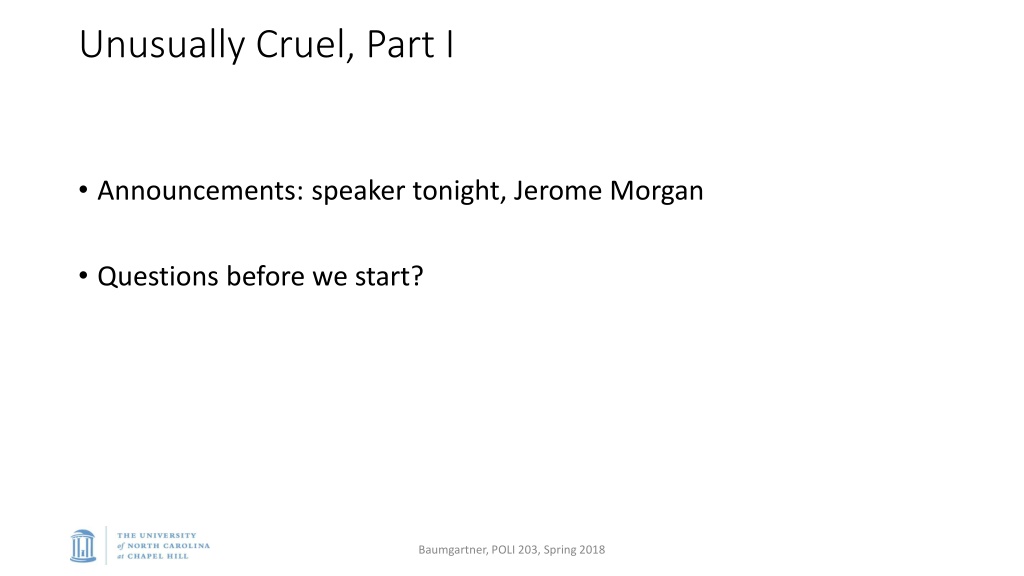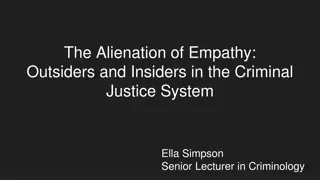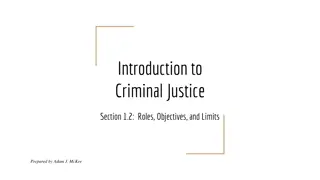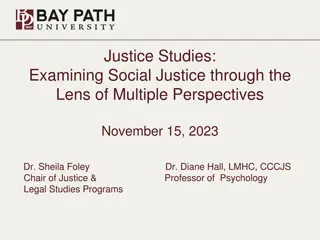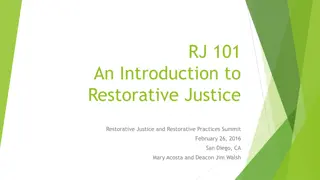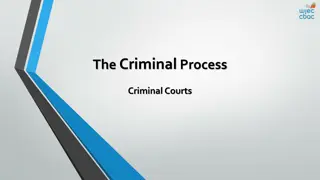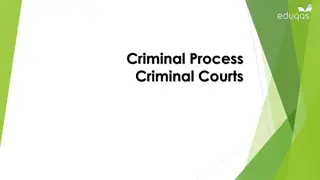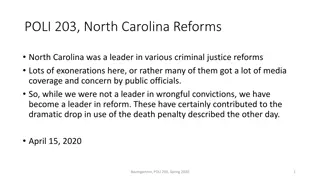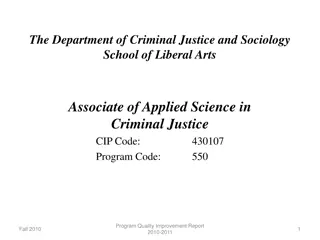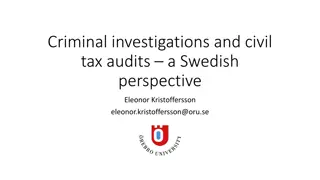Understanding the Criminal Justice System: Key Concepts and Practices
Explore essential aspects of the criminal justice system, including statistics on incarceration rates, plea bargaining dynamics, adversarial vs. inquisitorial systems, and differences between the US and UK. Delve into questions regarding high incarceration rates, the purpose of plea bargaining, and the power dynamics in legal proceedings. Gain insights into the roles of judges, prosecutors, and defense attorneys in different legal systems.
Download Presentation

Please find below an Image/Link to download the presentation.
The content on the website is provided AS IS for your information and personal use only. It may not be sold, licensed, or shared on other websites without obtaining consent from the author. Download presentation by click this link. If you encounter any issues during the download, it is possible that the publisher has removed the file from their server.
E N D
Presentation Transcript
Unusually Cruel, Part I Announcements: speaker tonight, Jerome Morgan Questions before we start? Baumgartner, POLI 203, Spring 2018
Unusually harsh Stats and figures from the Introduction: Some basic numbers to keep in mind, Fig 1.2: Peak in about 2008, about 7 million total under supervision Probation (4 million) Prison / jail (2 million) Parole (1 million) Very high rates of incarceration compared to other countries Very high rates compared to earlier periods in history This rise in punishment not correlated with a rise in crime (Fig 1.10) Baumgartner, POLI 203, Spring 2018
Some basic questions Why so high compared to other countries? Why so high compared to pre-1960s? Are we better off for it? Baumgartner, POLI 203, Spring 2018
Plea bargaining What is it? Why do we have it? How does it work, in practice? What would be a good discount rate to encourage it? What would be such a steep discount that maybe it means there is no case? What would be such a small discount that no one would take it? Baumgartner, POLI 203, Spring 2018
Adversarial v. inquisitorial systems France (F), Germany (D) represent inquisitorial systems US, UK, adversarial US, UK: power to the prosecutor F, D: power to the judge In both cases, the system can go wrong if the one with the power over-uses it. Baumgartner, POLI 203, Spring 2018
Inquisitorial systems Judge asks the questions Judge collects the evidence Defendant pleading guilty is just one element that the judge may consider Judge can appoint attorneys to play the role of prosecution or that of defense Judge controls the resources Judge are not necessarily interested in a conviction Baumgartner, POLI 203, Spring 2018
US UK differences wrt plea bargains Prosecuting barrister is appointed by the Crown Prosecution Service for just one case at a time, has no power over other cases Differences No backlog of cases for that prosecutor (he/she just has one case) No incentive to convict Baumgartner, POLI 203, Spring 2018
Some food for thought Why are our prosecutors so powerful? Did you vote in the last election for prosecutor? Did you vote in the last election for county sheriff? Given that they are so powerful, with the ability to drop or reduce charges, how would that be changed? How do other countries function with such weak prosecutors? Surprisingly well, actually Baumgartner, POLI 203, Spring 2018
